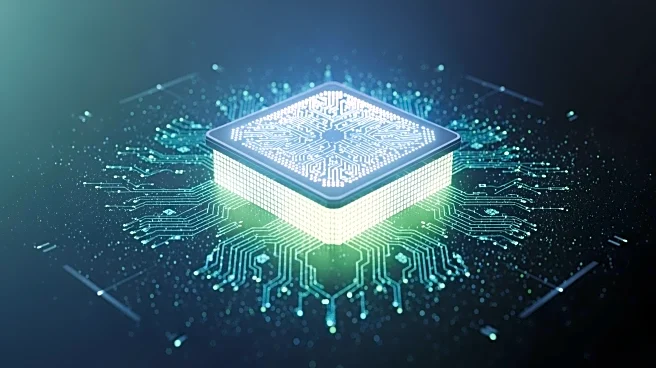What's Happening?
Researchers have developed a new technique called algorithmic fault tolerance (AFT) that significantly accelerates quantum error correction processes. This advancement could drastically reduce the time required for quantum computers to solve complex problems.
AFT restructures quantum algorithms to detect and correct errors dynamically, rather than at fixed intervals. In simulations, AFT demonstrated a reduction in error correction time by up to 100 times while maintaining accuracy. The findings, published in Nature, were based on tests using a simulated neutral-atom quantum computer. Yuval Boger, chief commercial officer at QuEra, highlighted the milestone as a significant step towards practical, large-scale quantum computing, with hardware tests expected in the near future.
Why It's Important?
The development of AFT is crucial for the advancement of quantum computing, as it addresses one of the major challenges: error correction. Quantum computers have the potential to outperform classical computers in solving complex problems, but their fragile qubits require efficient error correction to maintain coherence. AFT reduces the computational overhead associated with error correction, enabling quantum computers to perform calculations faster and with less hardware. This breakthrough could make quantum computing more practical for real-world applications, such as optimizing global shipping routes, which would otherwise be too time-consuming with current technology.
What's Next?
The next steps involve conducting hardware tests to validate the effectiveness of AFT in real quantum computing systems. Researchers are optimistic that this technique will pave the way for more efficient quantum computing solutions, potentially revolutionizing industries that rely on complex computations. As quantum computing technology continues to evolve, stakeholders in technology and business sectors are likely to explore new applications and investments in quantum computing infrastructure.
Beyond the Headlines
The implications of AFT extend beyond immediate technological advancements. By reducing the barriers to efficient quantum computing, this breakthrough could accelerate research in fields such as cryptography, materials science, and artificial intelligence. The ability to perform complex calculations quickly and accurately may lead to new discoveries and innovations that were previously unattainable.
















